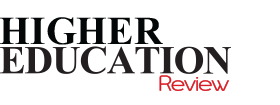Can Education Help The Youth Cope With The Emerging Scenarios?

Alvin Toffler has said, "The illiterate of the 21st. century will not be those who cannot read and write but those who cannot learn, unlearn and relearn!"
The winds of disruptions have started blowing across all sectors. With those disruptions, markets are getting fragmented into smaller niches & trends of mass personalization have been rapidly emerging. With that extreme pace of change, the half-life period of the products and services are shrinking. That means, after every few years, half of the products or services are getting either less relevant or irrelevant.The youth of today, being an integral part of today's economy, invariably is being at the front line of these changes. It is therefore, highly critical for the students to understand that to deal with these disruptions and consequent uncertainties, the mindset and skills to learn, unlearn and relearn can define the course of their life!
Teaching versus Learning
The famous Zen proverb reads, "Knowledge is learning something every day. Wisdom is letting go of something every day!" With the shrinking half-life period of the products/services, the rules of the game are changing. The knowledge driven content is getting updated quite rapidly with the way it is presented or explained. New knowledge avenues, emerging technologies and methodologies are rapidly developing. Content and knowledge is getting available beyond the four walls of the classrooms.
The medium and the platforms for content are also changing. Content is getting available in various formats. Each learner can have a different comfort with certain medium over the other. Then, like Ignacio Estrada once said, "If a child can't learn the way we teach, maybe we should teach the way they learn!"
Redefined role of the educator: "someone who inspires students to learn"
For certification of any kind, the measurement of learning outcomes is critical. That is what has been conventionally the key to be eligible for the certificates or the diplomas or degrees. If there are various platforms available for the learner like self-learning or facilitated learning or classroom learning or learning on the job, then from the point of view of the learning outcomes, all of these roads might lead to the same outcome. However, in that case, how can standardised evaluation?Like the prevailing skill development programs in India, the testing of the skills, competencies or knowledge acquired fromformal, semiformal or informal channels can be tested by certified agencies. Once they test the levels of learnings, uniform calibration or certification of skills and knowledge can be done.
Does that mean the traditional model of the black board, teacher, structured semesters etc. will cease to prevail? Well, as the result is crucial, it could trigger the need to have an alternative way of reaching the same end goals. Every child is gifted. They just unwrap their packages differently!
The role of the teacher is getting redefined. Content delivery cannot be the only role of the educator. That leads us to the issue which requires the paradigm shift, which is testing versus assessment! Testing means the focus is on what we do to learners 'after' learning, while an assessment means what we do with learners 'before, during & after' learning.
In the past few years, hundreds of new educational institutes have cropped up. The higher education sector has transitioned from demand crunch to the current phase of oversupply, but the fees continued to rise in the absence of Govt. support. There is uncertainty about employment or lower than expected compensation packages. On the other hand, from the perspectives of the employers, it means graduates whose competence, knowledge and functional skills could be compromised on due to lower eligibility criteria for admissions.
To education loan lenders this means students with uncertain and lower return on investment due to lower salaries need longer pay-back period or may not be able find employment or get low incomes, resulting in not being able to repay their education loans, causing extremely high NPAs in education loans. If this vicious cycle can be broken, it can ensure the required growth in education loan sector. It has become quite critical for the student and the families to evaluate holistically and analyse the return on investment and the payback period of the money invested on education.
With education cost rising steeply, students and parents are depending on scholarships or education loans to pursue their dreams. Loan specialists like Credila fund students for higher education in both India and overseas. Students can get their education loan pre-approved even before they start applying to Universities. The institute from where student completes the education remains with his/her name for lifetime! As Benjamin Franklin said, "An investment in knowledge pays the best interest!"
